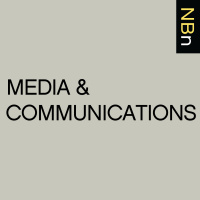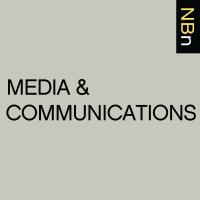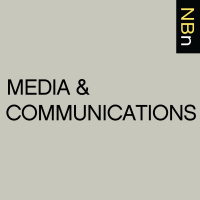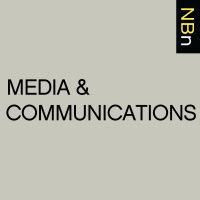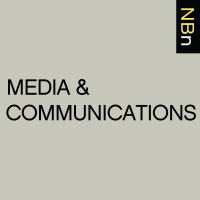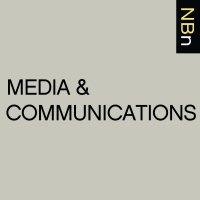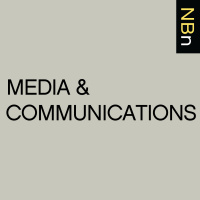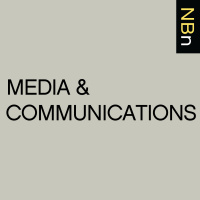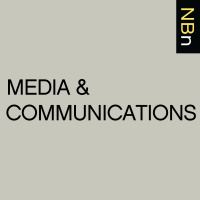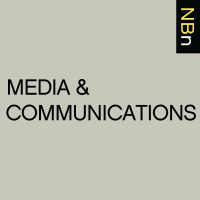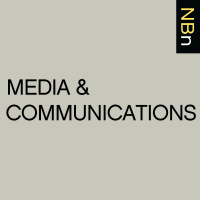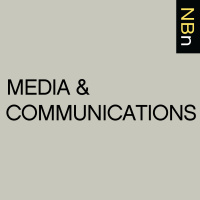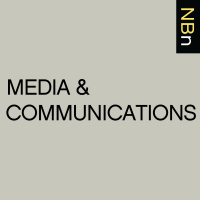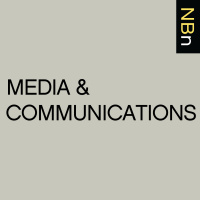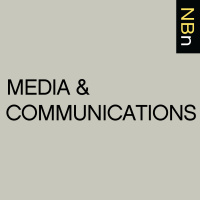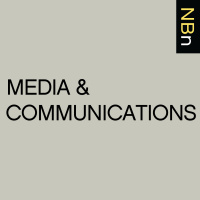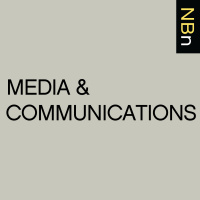Synopsis
Interviews with Scholars of Media and Communications about their New Books
Episodes
-
Brett Hutchins and David Rowe, “Sport Beyond Television: The Internet, Digital Media and the Rise of Networked Media Sport” (Routledge, 2013)
20/03/2014 Duration: 54minTwenty years ago, when I was studying abroad in Europe, the only way to keep track of my teams back in the US was to sneak looks in The International Herald Tribune at the newspaper kiosk (the price of the paper was beyond my meager budget). Twelve years after that, when I returned to Europe as a researching professor, I was able to watch any event I wanted online. I read the commentary on my home teams in my hometown newspaper. I tracked the rumors of trades and signings on the fan sites. The only obstacle I faced in following my teams was the difference in time zones. Even though the games were available, I seldom had the energy to stay up until 2 in the morning to watch them. The consumption of sport has changed profoundly in the last two decades. Higher bandwidths and faster processors now bring events to our laptop with the same crispness and color as our televisions. Sports leagues and networks are making more and more events available online. And we have a glimpse into the private lives of star athlet
-
Karma Chavez, “Queer Migration Politics: Activist Rhetoric and Coalitional Possibilities” (Illinois University Press, 2013)
10/03/2014 Duration: 19minKarma Chavez is the author of Queer Migration Politics: Activist Rhetoric and Coalitional Possibilities (Illinois University Press, 2013). Dr. Chavez is assistant professor of Communication Arts and Chicano and Latina Studies at the University of Wisconsin-Madison. She is also the co-founder of the Queer Migration Research Network and co-editor of Standing in the Intersection: Feminist Voices Feminist Practices in Communications Studies. Queer Migration Politics focuses on the intersection of political interest between immigration activists and LGBT activists. Chavez shows some of the inclusionary approaches taken by mainstream groups to advocate for a small handful of common policy objectives. The campaign to change US law to permit gay and lesbian citizens to sponsor foreign partners was prominent on the agenda. But Chavez’s approach challenges conventional politics by offering a “differential vision” of what coalitional politics might mean. The book has a lot for political scientists and sociologists, as
-
Sara Bannerman, “The Struggle for Canadian Copyright: Imperialism to Internationalism, 1842-1971”
11/02/2014 Duration: 57minIn The Struggle for Canadian Copyright: Imperialism to Internationalism, 1842-1971, Sara Bannerman narrates the complex story of Canada’s copyright policy since the mid-19th century. The book details the country’s halting attempts to craft a copyright regime responsive both to its position as a net importer of published work and to its peculiar political geography as a British dominion bordering the United States. Bannerman charts Canada’s early, largely unsuccessful effort to craft a less restrictive policy in the run up to, and aftermath of, the 1886 Berne Convention-the multilateral agreement that established the enduring framework for the international copyright system. The main obstacle, in the 19th and early 20th centuries, was Britain’s insistence on a uniform and Berne-friendly policy throughout the empire. Even as those imperial constraints fell away over the first half of the 20th century, Canada increasingly aligned with powerful net exporters like France and Britain–in large part, Bannerman shows,
-
Joseph Uscinski, “The People’s News: Media, Politics, and the Demands of Capitalism” (NYU Press, 2014)
08/02/2014 Duration: 42min“When we criticize the news, who are we really criticizing?” This is the final question asked by Professor Joseph Uscinski in his book, The People’s News: Media, Politics, and the Demands of Capitalism(NYU Press, 2014). The answer, Uscinski says in his interview, is us–the consumer. News producers, he writes, are merely responding to the demands of consumers, adjusting news content based on ratings, polls and audience demographics. The People’s News views news through the lens of news as a commodity beholden to market forces, not as a type of media. Combining the academic disciplines of media effects and political economy, The People’s News is a well-researched and well-reported look at what happens when the concepts of free press and democracy collide. Learn more about your ad choices. Visit megaphone.fm/adchoices
-
Robert Darnton, “On the Future of Libraries”
25/01/2014 Duration: 35minRobert Darnton, author of books, articles, and Carl H. Pforzheimer University Professor and Director of the University Library at Harvard. Darnton joins host Jonathan Judaken to discuss the future of libraries, the printed press, and his project – the Digital Public Library of America, or D.P.L.A. – which he hopes will foster a culture of “Open Access” to help promote the free communication of knowledge and sharing of intellectual wealth in order to create this “digital commonwealth.” Learn more about your ad choices. Visit megaphone.fm/adchoices
-
Patrick Burkart, “Pirate Politics: The New Information Policy Conflicts” (MIT Press, 2014)
24/01/2014 Duration: 49minPatrick Burkart‘s Pirate Politics: The New Information Policy Conflicts (MIT Press, 2014) considers the democratic potential and theoretical significance of groups espousing radical perspectives on intellectual property and cyber-liberty. Focusing on the Swedish Pirate Party, Burkart details the history of these movements, noting the ways in which they have impacted both the local politics of Europe and the international culture industries. Employing conceptual models drawn from both critical theory and new social movement theory, Burkart makes a compelling case that the politics of piracy must understood as a defense of common culture. Just as social movements have come together to protect the environment, pirate politics aim to keep the Internet a space in individual and communal rights are not overrun by the interests of governments and corporations. Learn more about your ad choices. Visit megaphone.fm/adchoices
-
Erica Cusi Wortham, “Indigenous Media in Mexico: Culture, Community, and the State” (Duke University Press, 2013)
14/01/2014 Duration: 45minVideography is a powerful tool for recording and representing aspects of human society and culture, and anthropologists have long used – and debated the use of – video as a tool to study indigenous and traditional peoples. Indigenous people themselves, however, have increasingly turn video towards their own cultural and communal ends, and this indigenous use of video raises its own questions: who in indigenous communities will control video production? How can video be integrated into indigenous life? And how should indigenous videomakers relate to state and institutional forces. In Indigenous Media in Mexico: Culture, Community, and the State (Duke University Press, 2013), Erica Cusi Wortham examines these issues in the case of “video indÃgena” in the Mexican states of Oaxaca and Chiapas during the 1990s. Indigenous Media in Mexico places video indÃgena into the historical context of 1990s Mexico, a period marked by both the constitutional recognition of indigenous groups as integral to the Mexican stat
-
Melissa Aronczyk, “Branding the Nation: The Global Business of National Identity” (Oxford UP, 2013)
04/12/2013 Duration: 56minIn Branding the Nation: The Global Business of National Identity, Melissa Aronczyk locates the rise of nation branding as a response to the perceived need to sculpt national identity in the face of a fiercely competitive global economy. In tracking the history of the nation-branding phenomenon, Aronczyk recounts the rise and spread of the very idea of national “competitiveness,” a discourse that, in effect, created a market that branding specialists then tapped. The book engages with the large scholarly literature on nations and nationalism, arguing that nation branding should not be dismissed as merely the invasion of business practices into the national imaginary–though it has this character, undeniably–but that the practice should also be read as a discourse that maintains, extends, and reconstitutes the nation. Based on dozens of interviews with nation-branding specialist over a five-year period, Aronczyk develops major case studies of Poland and Canada in particular, and substantial treatments of a numbe
-
Thomas Bey William Bailey, “Unofficial Release: Self-Released and Handmade Audio in Post-Industrial Society” (Belsona Books, 2012)
22/11/2013 Duration: 56minThomas Bey William Bailey is the author of Unofficial Release: Self-Released and Handmade Audio in Post-Industrial Society (Belsona Books, 2012). He is a psycho-acoustic sound artist and writer on saturation culture. Thomas traces the history of self-released audio from its origins in mail-art networks of the 1970s to the present day practice of using antiquated media – the humble cassette tape – for the dissemination of experimental sounds. Net-labels, mp3 blogs, tape traders, and their many casts of characters are examined along the way as changing technologies impact the strategies for resilience among self-releasing audio artists. Learn more about your ad choices. Visit megaphone.fm/adchoices
-
Ethan Thompson and Jason Mittell, “How to Watch Television” (NYU Press, 2013)
16/11/2013 Duration: 47minWhat if there was an instruction manual for television? Not just for the casual consumer, but for college students interested in learning about the culture of television, written by some of the field’s top scholars? In How to Watch Television (New York University Press, 2013), editors Ethan Thompson and Jason Mittell have put together a collection of 40 original essays from some of today’s top scholars on television culture. Each essay focuses on a single television show, and each is an example of how to practice media criticism on an academic level. Thompson, Associate Professor at Texas A&M University-Corpus Christi, and Mittell, professor at Middlebury College, also contributed essays to the collection. As the authors explain: “This book, the essays inside it, and the critical methods the authors employ, all seek to expand the ways you think about television.” Learn more about your ad choices. Visit megaphone.fm/adchoices
-
Heidi Campbell, “When Religion Meets New Media” Routledge, 2010
08/10/2013 Duration: 01h05minWhat does religion have to do with technology? Many people think that religious practitioners are inherently opposed to new technological developments. The reality of the situation is that religious communities have a very complex relationship with technology. Heidi Campbell, professor in the Department of Communication at Texas A&M University, examines the intersection religion and technology in When Religion Meets New Media (Routledge, 2010). Her main query is what responses do Jewish, Christian, and Muslim communities have to new forms of media. Campbell pinpoints the various structural components of religious communities’ engagement with technologies through a number of case studies, including the Amr Khaled phenomenon, the Gulen Movement, Shabbat in an Orthodox Jewish home, the “Pause, its prayer time” ad campaign, the Anglican Cathedral in Second Life, Islamic apps, and the kosher cellphone, among several others. In When Religion Meets New Media, she offers a comprehensive theoretical model for investi
-
Allen Salkin “From Scratch: Inside the Food Network” (Putnam, 2013)
05/10/2013 Duration: 01h06minWhen I was growing up the only cooking show on TV I remember was Julia Child. I sometimes watched “The French Chef,” not so much to learn anything about cooking, but rather just to watch Julia. She was a hoot. When I saw the famous “Saturday Night Live” in 1978, I wasn’t sure which was funnier–Dan Aykroyd as Julia or Julia herself. Today, of course, cooking is very serious business on TV and the reason, of course, is the Food Network. It grew from virtually nothing twenty years ago to a massive cultural and economic force. It’s watched by millions and it makes millions more. It’s changed the way Americans (and many overseas) think about both food and television. It’s sky is full of stars. How’d that happen? In his remarkably well researched, wonderfully written and engrossingly told From Scratch: Inside the Food Network (Putnam, 2013), former New York Times reporter Allen Salkin tells the–pardon the pun–saucy tale. Please listen in. Learn more about your ad choices. Visit megaphone.fm/adchoices
-
George Brock, “Out of Print: Newspapers, Journalism and the Business of News in the Digital Age” (Kogan Page, 2013)
27/09/2013 Duration: 40minGeorge Brock approached his book about newspapers and journalism in the digital age unwilling to write another gloom-and-doom narrative about the death or decline of the industry. When he studied the historical development of journalism and current trends, he found the industry is what is always has been: volatile, evolving, and vital to society’s well being. Out of Print: Newspapers, Journalism and the Business of News in the Digital Age (Kogan Page, 2013) is an important look at the industrial, economic, and pragmatic realities of a shifting industry. Using modern case studies, including the phone-hacking scandal that brought down Great Britain’s News of the World, as well as historical research and recent data, Brock examines where journalism was, is and will be. Brock, head of City University London’s prestigious graduate school of journalism, has produced a work that transcends academia without sacrificing methodology or theory. “Because journalism lives on the frontier between democratic purposes and
-
Ian Samson, “Paper: An Elegy” (Harper Collins, 2012)
24/09/2013 Duration: 34minIn our digital world, it does seem like paper is dying by inches. Bookstores are going out of business, and more and more people get their news from the internet than from newspapers. But how irrelevant has paper really become? As Ian Samson argues in his new book, Paper: An Elegy (Harper Collins, 2012), not only is paper still vital in our society, it pretty much dominates all our lives. From advertising to currency, to board games and origami, paper still revolves around most business and leisure. Even “post-paper” products, such as e-readers, imitate the aesthetics and feel of paper, mirroring it in spirit if not in product. And how many of us have heard, “yes, I have an e-book reader, but I just really like the feel of a book in my hand”? In this interview, Ian Samson tells us about the history of paper, its uses throughout time, and our love affair with the “ultimate man-made material.” Learn more about your ad choices. Visit megaphone.fm/adchoices
-
David Beer, “Popular Culture and New Media: The Politics of Circulation” (Palgrave, 2013)
21/09/2013 Duration: 38minPopular Culture and New Media: The Politics of Circulation (Palgrave, 2013) is written by David Beer, a Senior Lecturer in Sociology at York University in the UK. He blogs here and tweets here. The book attempts to describe and analyse the impact of new media on culture and society, using a range of critical theoretical starting points. Its use of theory is especially important to such a fast moving topic. The book aims to have continued and longer term relevance to debates about culture, even as specific technologies come and go, as a result of its theoretical basis David’s book raises a series of challenges for a range of academic areas. Perhaps the most important is the impact of media communications on the sociology of culture. Sociological studies of culture have been slow to consider the impact of new media, as they have tended to focus on debates about the relationship between tastes and class or social status. Popular Culture and New Media argues that the architecture underlying the way many people a
-
Sarah Banet-Weiser, “Authentic: The Politics of Ambivalence in a Brand Culture” (NYU Press, 2013)
27/08/2013 Duration: 57minIn Authentic: The Politics of Ambivalence in a Brand Culture (NYU Press, 2013), Sarah Banet-Weiser scrutinizes the spread of brand culture into other spheres of social life that the market–at least in our imaginations–had left untouched: politics, religion, creativity, and the self. Banet-Weiser observes that the authenticity concept seems to carry more weight in a culture of selling: We have come to expect, and to some extent accept, that authenticity, like everything else, can be trademarked. Through rich case studies–Dove ad campaigns, Facebook self-performance, street art, green activism, and New Age spirituality among them–Authentic identifies the pervasive (and often troubling) ambivalence of branded living. Learn more about your ad choices. Visit megaphone.fm/adchoices
-
Brian Michael Goss, “Rebooting the Herman and Chomsky Propaganda Model in the Twenty-First Century” (Peter Lang, 2013)
22/07/2013 Duration: 44minBrian Michael Goss, professor of communication at St. Louis University in Madrid, has taken one of media’s most studied theories and given it a facelift. In Rebooting the Herman and Chomsky Propaganda Model in the Twenty-First Century (Peter Lang, 2013), Goss revisits the model created by Edward Herman and Noam Chomsky in their 1988 book, Manufacturing Consent. The filters remain, but Goss pushes the model into the modern context of new media models and expanded global exportation. “Far from condemning journalism,” Goss writes, “I hope to see it more closely approximate its mythologies about itself.” “Rebooting” is an important work, relevant not just to scholars, but all consumers of media. Learn more about your ad choices. Visit megaphone.fm/adchoices
-
John O. McGinnis, “Accelerating Democracy: Transforming Governance Through Technology” (Princeton UP, 2013)
10/07/2013 Duration: 01h01minThe advent of very powerful computers and the Internet have not “changed everything,” but it has created a new communications context within which almost everything we do will be somewhat changed. One of the “things we do” is governance, that is, the way we organize ourselves politically and, as a result of that organization, provide for the individual and public good. In his fascinating book Accelerating Democracy: Transforming Governance Through Technology (Princeton UP, 2013), John O. McGinnis examines the promise and peril of advanced computation and Internet communications for our democracy. The former (promise), he says, is great if we think deeply about the impact of the new media on politics and public policy. He proposed that we take the bull by the horns and experiment with new technology so that governance can become both more democratic and more efficient. He suggests a number of ways in which the potential of the new media can be made to do just this. Listen in. Learn more about your ad choices.
-
Michael Serazio, “Your Ad Here: The Cool Sell of Guerrilla Marketing” (NYU Press, 2013)
03/07/2013 Duration: 58min“Power through freedom.” Michael Serazio‘s Your Ad Here: The Cool Sell of Guerrilla Marketing (NYU Press, 2013) traces the mushrooming world of guerrilla marketing–defined to include word-of-mouth, viral, and advergaming, along with a host of other, often hidden kinds of persuasion. The book describes the ways that advertisers give up “control” to consumers through “authentic” discovery, dialogue, amateurism, the non-sell sell, and even anti-marketing messages themselves–all of which serve, paradoxically, to reinforce control and commercialism. The consumer subject, writes Serazio drawing on Foucault and Gramsci, is strategically engaged to act without the sense of being acted upon–a kind “corporate ventriloquism.” The book includes rich, detailed case studies and interviews with marketers, who recount their “cool sell” campaigns for America’s Army, PBR, and Burger King’s “Subservient Chicken.” Learn more about your ad choices. Visit megaphone.fm/adchoices
-
Nicco Mele, “The End of Big: How the Internet Makes David the New Goliath” (St. Martin’s Press, 2013)
24/06/2013 Duration: 37minNicco Mele is the author of The End of Big: How the Internet Makes David the New Goliath (St. Martin’s Press, 2013). He is Adjunct Lecturer in Public Policy at the Kennedy School’s Shorenstein Center on the Press, Politics, and Public Policy, Harvard University. Mele writes as a technology expert and as a witness to history. He served as a campaign staffer for the Howard Dean for President Campaign in 2003. He and his colleagues implemented many of the web-based campaign innovations that resulted in President Obama winning the 2008 presidential election and define the modern American political campaign. Mele links that experience with radical social changes brought about by the internet. His title thesis, The End of Big, suggest that big institutions in nearly every sector of our lives (business, government, news) have been eroded and, in some cases, supplanted by smallness. An enthusiast for technology, Mele also cautions against the risks associated with this transformation. Learn more about your ad choices

